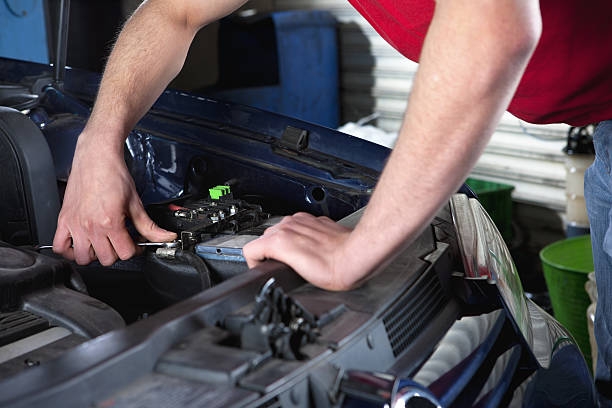Importance of Timely Car Battery Replacement: Avoiding Breakdowns and Hassles

When it comes to vehicle maintenance, one component that often gets overlooked until it's too late is the car battery. Ignoring the health of your car battery can lead to unexpected breakdowns and inconvenient hassles, but timely replacement can save you from such troubles.
Understanding Car Batteries
Car batteries serve a crucial role in providing the electrical power needed to start your vehicle and run its electrical systems. They come in various types, including lead-acid, absorbed glass mat (AGM), and lithium-ion, each with its own characteristics and benefits.
Signs of a Failing Car Battery
Dim headlights, electrical issues, and difficulty starting the car are common indicators of a failing battery. Ignoring these signs can leave you stranded when your car refuses to start unexpectedly.
Importance of Timely Replacement
Risk of Ignoring Battery Replacement
Continuing to use a deteriorating battery increases the risk of being stranded in inconvenient locations, such as on the side of the road or in a parking lot. Moreover, a failing battery can cause damage to other vehicle components, leading to costly repairs.
Factors Influencing Battery Lifespan
The lifespan of a car battery is influenced by factors such as climate, weather conditions, driving habits, and vehicle usage. Extreme temperatures, frequent short trips, and excessive electrical loads can all contribute to premature battery failure.
How Often Should You Replace Your Car Battery?
While the lifespan of a car battery varies depending on usage and conditions, a general guideline is to replace it every three to five years. Regular inspection and testing can help determine the health of your battery and identify when replacement is necessary.
Professional vs. DIY Battery Replacement
While some may opt for a do-it-yourself approach to battery replacement, professional installation ensures proper fitting and reduces the risk of damage to the vehicle's electrical system. It's a small investment for peace of mind and long-term reliability.
Choosing the Right Replacement Battery
When selecting a replacement battery, it's essential to choose one that is compatible with your vehicle and meets your performance needs. Investing in a quality battery ensures reliability and longevity, saving you from frequent replacements.
Maintenance Tips to Extend Battery Life
Simple maintenance tasks, such as keeping the battery terminals clean and avoiding deep discharges, can significantly extend the lifespan of your car battery. Regular checks and preventive measures can help avoid unexpected failures.
The Role of Modern Technology
Advances in battery monitoring systems and technology have made it easier to track the health of your car battery and detect potential issues before they lead to failure. Smart battery chargers and diagnostic tools provide valuable insights into battery performance.
Cost Considerations
While the cost of replacing a car battery may seem like an inconvenience, it's a small price to pay compared to the expenses associated with a dead battery and subsequent repairs. Budgeting for regular maintenance can help minimize unexpected expenses.
Eco-Friendly Disposal of Old Batteries
Proper disposal of old car batteries is essential for environmental preservation. Recycling options are available to ensure that lead-acid batteries are safely recycled and reused, minimizing their impact on the environment.
Conclusion
Timely car battery replacement is essential for avoiding breakdowns and hassles on the road. By understanding the signs of a failing battery, investing in quality replacements, and practicing proactive maintenance, you can ensure the reliability and longevity of your vehicle's electrical system.
- Industry
- Art
- Causes
- Crafts
- Dance
- Drinks
- Film
- Fitness
- Food
- Games
- Gardening
- Health
- Home
- Literature
- Music
- Networking
- Other
- Party
- Religion
- Shopping
- Sports
- Theater
- Wellness
- News


